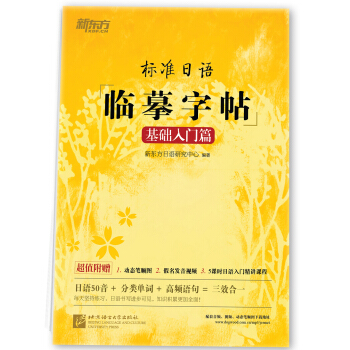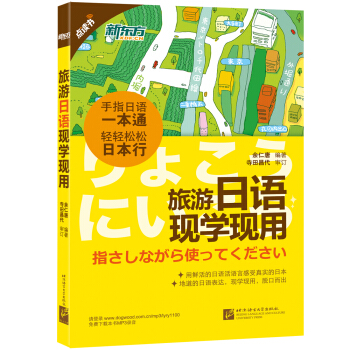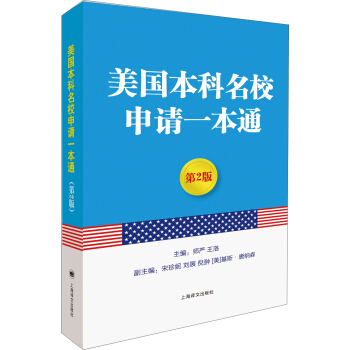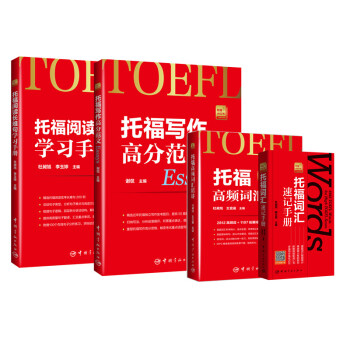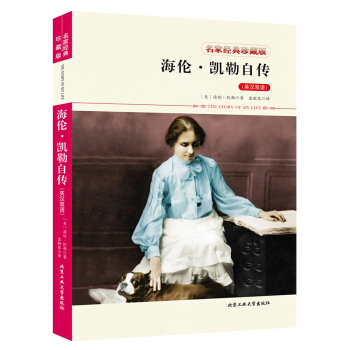

具体描述
编辑推荐
★“20世纪*富感召力作家”之一海伦?凯勒的代表作。★荣获“国家五个一工程奖”。
★被誉为“世界文学史上无与伦比的杰作”。
★被世界上许多国家列为青少年必读书,被翻译成上百种语言畅销于世界各地。
内容简介
海伦·凯勒的散文代表作《假如给我三天光明》,她从一个失去光明者的视角,告诫所有身体健全的人们应珍惜生命,珍惜造物主赐予的一切。本书收录了凯勒著名的演讲《假如给我三天光明》,同时全文翻译了《我的故事》以及《我的世界》。作者简介
海伦·凯勒,19世纪美国盲聋女作家、教育家、慈善家、社会活动家。她一生完成了一系列传世之作,并致力于为残疾人造福,建立慈善机构,被美国《时代周刊》评为美国十大英雄偶像,荣获总统自由勋章等奖项。译者:袁敏琴,中国人民公安大学研究生毕业,北京政法职业学院副教授,北京市青年骨干教师,长期从事一线教学工作。出版作品有《西方警务实践》《安全保卫人力防范》《超级记忆力训练》《海伦凯勒的教育》《高效时间运筹术》《感悟人生的108个经典寓言》。目录
THE STORY OF MY LIFE第一篇 我生活的故事
CHAPTER I / 第1章 早期的光明 2
CHAPTER II / 第2章 童年的记忆 10
CHAPTER III / 第3章 寻找希望 21
CHAPTER IV / 第4章 重塑生命 28
CHAPTER V / 第5章 认识大自然 34
CHAPTER VI / 第6章 领悟“爱”的真谛 39
CHAPTER VII / 第7章 沐浴知识的阳光 45
CHAPTER VIII / 第8章 欢乐的圣诞节 56
CHAPTER IX / 第9章 波士顿之旅 59
CHAPTER X / 第10章 和大海亲密接触 64
CHAPTER XI / 第11章 山间秋季 68
CHAPTER XII / 第12章 洁白的冰雪世界 75
CHAPTER XIII / 第13章 我要说话 79
CHAPTER XIV / 第14章 《霜王》事件 85
CHAPTER XV / 第15章 世界博览会 99
CHAPTER XVI / 第16章 学习拉丁文 105
CHAPTER XVII / 第17章 客居纽约的学习生活 108
CHAPTER XVIII / 第18章 剑桥女子中学 112
CHAPTER XIX / 第19章 冲出困境 120
CHAPTER XX / 第20章 实现大学的梦想 127
CHAPTER XXI / 第21章 爱书如命 138
CHAPTER XXII / 第22章 享受多彩的生活 156
CHAPTER XXIII / 第23章 永远的朋友 174
THREE DAYS TO SEE
第二篇 假如给我三天光明
Spend Your Days / 珍惜每一天 190
The First Day / 第一天 196
The Second Day / 第二天 201
The Third Day / 第三天 207
《大美百科全书 海伦?凯勒传》 213
精彩书摘
I was born on June 27, 1880, in Tuscumbia, a little town of northern Alabama.The family on my father’s side is descended from Caspar Keller, a native of Switzerland, who settled in Maryland. One of my Swiss ancestors was the first teacher of the deaf in Zurich and wrote a book on the subject of their education- rather a singular coincidence; though it is true that there is no king who has not had a slave among his ancestors, and no slave who has not had a king among his.
My grandfather, Caspar Keller’s son, “entered”large tracts of land in Alabama and finally settled there. I have been told that once a year he went from Tuscumbia to Philadelphia on horseback to purchase supplies for the plantation, and my aunt has in her possession many of the letters to his family, which give charming and vivid accounts of these trips.
My Grandmother Keller was a daughter of one of Lafayette’s aides, Alexander Moore, and granddaughter of Alexander Spotswood, an early Colonial Governor of Virginia. She was also second cousin to Robert E. Lee.
My father, Arthur H. Keller, was a captain in the Confederate Army, and my mother, Kate Adams, was his second wife and many years younger. Her grandfather, Benjamin Adams, married Susanna E. Goodhue, and lived in Newbury, Massachusetts, for many years. Their son, Charles Adams, was born in Newburyport, Massachusetts, and moved to Helena, Arkansas. When the Civil War broke out, he fought on the side of the South and became a brigadier-general. He married Lucy Helen Everett, who belonged to the same family of Everett as Edward Everett and Dr. Edward Everett Hale. After the war was over the family moved to Memphis, Tennessee.
I lived, up to the time of the illness that deprived me of my sight and hearing, in a tiny house consisting of a large square room and a small one, in which the servant slept. It is a custom in the South to build a small house near the homestead as an annex to be used on occasion. Such a house my father built after the Civil War, and when he married my mother they went to live in it. It was completely covered with vines, climbing roses and honeysuckles. From the garden it looked like an arbour. The little porch was hidden from view by a screen of yellow roses and Southern smilax. It was the favourite haunt of humming-birds and bees.
The Keller homestead, where the family lived, was a few steps from our little rose-bower. It was called “Ivy Green” because the house and the surrounding trees and fences were covered with beautiful English ivy. Its old-fashioned garden was the paradise of my childhood.
Even in the days before my teacher came, I used to feel along the square stiff boxwood hedges, and, guided by the sense of smell, would find the first violets and lilies. There, too, after a fit of temper, I went to find comfort and to hide my hot face in the cool leaves and grass.
What joy it was to lose myself in that garden of flowers, to wander happily from spot to spot, until, coming suddenly upon a beautiful vine, I recognized it by its leaves and blossoms, and knew it was the vine which covered the tumble-down summer-house at the farther end of the garden! Here, also, were trailing clematis, drooping jessamine, and some rare sweet flowers called butterfly lilies, because their fragile petals resemble butterflies’ wings. But the roses-they were loveliest of all. Never have I found in the greenhouses of the North such heart-satisfying roses as the climbing roses of my southern home. They used to hang in long festoons from our porch, filling the whole air with their fragrance, untainted by any earthy smell; and in the early morning, washed in the dew, they felt so soft, so pure, I could not help wondering if they did not resemble the asphodels of God’s garden.
The beginning of my life was simple and much like every other little life. I came, I saw, I conquered, as the first baby in the family always does. There was the usual amount of discussion as to a name for me. The first baby in the family was not to be lightly named, every one was emphatic about that. My father suggested the name of Mildred Campbell, an ancestor whom he highly esteemed, and he declined to take any further part in the discussion. My mother solved the problem by giving it as her wish that I should be called after her mother, whose maiden name was Helen Everett.
But in the excitement of carrying me to church my father lost the name on the way, very naturally, since it was one in which he had declined to have a part. When the minister asked him for it, he just remembered that it had been decided to call me after my grandmother, and he gave her name as Helen Adams.
……
前言/序言
PrefaceIT is with a kind of fear that I begin to write the history of my life. I have, as it were, a superstitious hesitation in lifting the veil that clings about my childhood like a golden mist. The task of writing an autobiography is a difficult one. When I try to classify my earliest impressions, I find that fact and fancy look alike across the years that link the past with the present. The woman paints the child’s experiences in her own fantasy. A few impressions stand out vividly from the first years of my life; but “the shadows of the prison-house are on the rest. ” Besides, many of the joys and sorrows of childhood have lost their poignancy; and many incidents of vital importance in my early education have been forgotten in the excitement of great discoveries. In order, therefore, not to be tedious I shall try to present in a series of sketches only the episodes that seem to me to be the most interesting and important.
Helen Keller
序 言
当我提起笔来,记下从出生到现在的生命历程,真觉得惶恐不安。童年往事犹如笼罩在雾一般轻柔的薄幕下,现在要把它掀开,的确让我疑虑重重。写自传本身是件很难的事,更何况童年早已久远,我已经无法分清楚哪些是事实,哪些只是我的幻觉想象。不过,在我的大脑记忆中,有些事情仍然鲜明生动地闪现出来,虽然某些画面只是片断的、零碎的,但对于我的人生却有或多或少的影响。为了避免冗长乏味,我将节选一些最有趣和最有价值的情节,来讲述我生活的故事。
——海伦?凯勒
用户评价
这本书的书脊设计非常简洁,黑色的主色调配上烫金的字体,透露出一种沉稳而经典的气息。拿到手里,分量感十足,纸张的质感也相当不错,厚实而略带纹理,翻阅起来有一种沙沙的、令人愉悦的触感。我特别欣赏它采用的这种对开式的排版,左页是英文原文,右页是中文译文,这样的设计对于我这种正在努力提升英文阅读能力的人来说,简直是福音。每当遇到晦涩难懂的英文句子时,目光可以立刻瞥向右侧的中文参考,理解的流畅性大大提高,完全不会因为查字典而打断阅读的连贯性。装帧工艺也看得出是下了功夫的,书页之间的装订牢固,相信即便是经常翻看,也不会轻易出现散页的担忧。这种对实体书的重视,在如今这个数字阅读盛行的时代,显得尤为珍贵,它不仅仅是一本书,更像是一件值得收藏的艺术品,让人愿意把它摆在书架最显眼的位置,随时取阅,细细品味。整体而言,从视觉到触觉,这本书都给出了高水准的反馈,让人对即将开始的阅读之旅充满了美好的期待。
评分译文的质量,是决定一本外文原著阅读体验的关键,而这本双语版本的译者显然是下了苦功的。我特意随机挑选了几个段落进行对比,发现译者在力求忠实于原文意境的同时,并没有陷入生硬的“翻译腔”。很多地方,中文的表达流畅自然,甚至在某些文学色彩浓厚的句子上,译者还巧妙地运用了更符合汉语习惯的词汇和句式,使得中文读者也能享受到原文所蕴含的美感和韵味。这不仅仅是文字的转换,更是文化和情感的桥梁搭建。例如,原文中那些充满哲理性的思辨,在译文中依然保持了其深度和穿透力,没有因为语言的跨越而显得平庸。对于我这种需要双语对照的读者来说,这种高质量的翻译极大地降低了理解的门槛,让我能够更专注于内容本身的情感流动,而不是纠结于复杂的词句结构,可以说是为深度阅读提供了一个非常可靠的辅助工具。
评分这本书的结构安排,显示出一种非常清晰的逻辑脉络。它并非仅仅按照时间顺序简单罗列事件,而是巧妙地在不同的人生阶段中穿插了作者对于自身处境、对于教育、对于人与人之间联结的深刻反思。这种叙事上的“跳跃”并非混乱,而更像是在回顾人生画卷时,有重点地放大某些关键的转折点,让读者得以更深入地探讨主题。比如,在描述某项技能的艰辛习得过程后,作者会立刻拔高到对“沟通”本质的理解,这种层层递进的结构,使得阅读体验非常富有层次感和思考性。它引导着读者不仅要关注“发生了什么”,更要思考“这意味着什么”。这种严谨的内在组织,让这本书读起来绝非轻松的消遣,而更像是一次严肃的哲学对话,每一章的结束都留下了一片值得回味的思考空间,让人不禁想合上书本,对着窗外沉思良久,才能继续下一段旅程。
评分从一个更宏观的角度来看,这本书所传达的精神内核,对于现代人而言,具有极强的现实意义。在如今这个信息爆炸、注意力极度分散的时代,我们很容易迷失在外界的喧嚣之中,忘记了向内探索的价值。而这本书,像是一剂强效的清醒剂,它不动声色地提醒着我们:真正的局限往往存在于我们内心的预设之中,而非客观环境的障碍。作者对“限制”的定义是极其独特的,她似乎在告诉世界,身体或感官上的缺失,远不如精神上的封闭来得更可怕。阅读她的经历,能极大地重塑我们对“挑战”二字的认知边界。它不是教人盲目乐观,而是展示了一种积极的、建设性的应对困境的态度——即便是面对看似无法逾越的鸿沟,依然有能力去开辟新的道路,去创造属于自己的世界。这种不屈服、不放弃的内在驱动力,是这本书最宝贵的精神财富,也是我这次阅读体验中最受触动的部分。
评分初读这本传记的文字,我立刻被那种直抵人心的力量所震撼。作者叙事的节奏把握得极其精妙,她似乎毫不避讳地将自己最脆弱、最挣扎的瞬间和盘托出,没有丝毫矫饰的痕迹。读到她描述那些漫长、黑暗、感觉被世界隔绝的童年时期,我仿佛能感受到那种无声的呐喊和深重的孤独感,心头也不禁为之收紧。然而,正是这种坦诚,使得后续那些关于学习、关于突破自我极限的描写,显得愈发光芒万丈。她笔下的语言,不是那种高高在上说教式的陈述,而更像是一位老朋友在耳边娓娓道来自己的心路历程,每一个转折,每一次顿悟,都让人感觉真实可触,仿佛那些挑战她也曾亲身经历过。特别是她对“感知”的细腻描摹,那种通过其他感官去重新构建世界的努力,展现了一种令人叹服的生命韧性。这种叙事风格,使得这本书超越了一般的个人经历记录,成为了一部关于人类精神力量的颂歌。
评分京东做活动,囤了很多书准备以后慢慢看!
评分正版图书,印刷不错,内容也很好,买了这一套书里面的不少本了,都是趁6-18活动价买的,99元10本,性价比爆棚。
评分昨天下午买的,上午就到了,神速啊,但是书有点褶皱(从照片可以看出来),不过无伤大雅?
评分很经典,必读的好书,好评
评分在京东买书买的停不了了,已经囤了很多,书大多质量好,偶尔会有一两本纸质一般的,每次收到书都好开心。这个系列买了好几本,字体有点小,但质量不错,而且中英在同一页很方便,看小说学英语好
评分连着买了几十本,感觉有点停不下来了,总是很期待书到手的感觉。书的质量有好也有一般的,这本就不错,中英文在同一页对照很方便,这系列入了几本,囤货慢慢看。简爱很久以前就看过了就冲着有英文的买
评分价格实惠质量好,信赖京东商城网购。
评分很好挺好的,一切都好很好挺好的,一切都好很好挺好的,一切都好
评分书非常好,很喜欢,京东自营多快好省绝对的正版书啊,对提高英语水平有很大作用
相关图书
本站所有内容均为互联网搜索引擎提供的公开搜索信息,本站不存储任何数据与内容,任何内容与数据均与本站无关,如有需要请联系相关搜索引擎包括但不限于百度,google,bing,sogou 等
© 2026 book.idnshop.cc All Rights Reserved. 静思书屋 版权所有

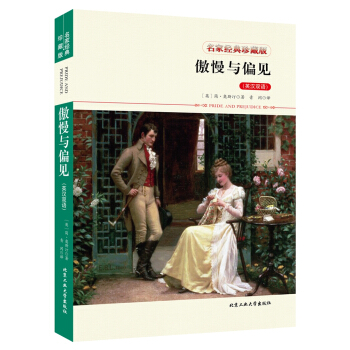
![飞鸟集+新月集(英汉对照注释版 套装全2册) [Stray Birds+The Crescent Moon] pdf epub mobi 电子书 下载](https://pic.tinynews.org/12129055/5ad5a6c3N69d78fcb.jpg)




